When most Californians hear the words “human trafficking,” they imagine a faraway, third-world country. Yet the practice is rampant within the United States –– California ranks among the top four domestic destinations for human trafficking. California is home to an extremely profitable human trafficking industry due to its extensive international borders, easy access to the Pacific Ocean through well-developed harbors, multiple international airports, large immigrant population, and strong economy; these factors, while not inherently dangerous in themselves, create prime circumstances for human trafficking to thrive when collected within the borders of one state. Although the ease of access to foreign countries from California does aid in perpetuating California’s human trafficking crisis, 72 percent of individuals whom were found to be trafficked within California were American –– not foreign.
There are two main forms of human trafficking present in California: sex trafficking and labor trafficking. The federal Trafficking Victims Protection Act of 2000 (TVPA) defines sex trafficking as “the recruitment, harboring, transportation, provision, or obtaining of a person for the purpose of a commercial sex act, in which a commercial sex act is induced by force, fraud, or coercion, or in which the person forced to perform such an act is under the age of 18 years.” Sex trafficking is prevalent throughout the U.S. in places such as cantina bars, massage parlors, strip clubs, hotels, and even truck stops. The age that most people are entered into sex trafficking is shockingly young; the average age of entry for girls into trafficked prostitution or pornography is 12-14 years old, and for boys, it is even lower at 11-13 years old. It is crucial that individuals recognize the commonality of human trafficking and the fact that it is prevalent throughout the state.
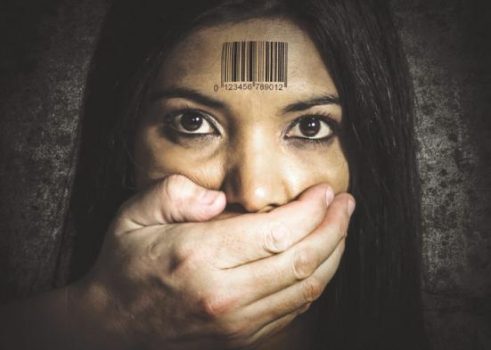
Source: Odyssey
The importance of being aware of trafficking within California is even more crucial now, with a drastic global increase of sex trafficking within the past couple of decades resulting from the rise of the internet, the ease of profitability, and the misunderstanding of the crime. The commercial sexual exploitation of children has moved off of the streets and onto the internet, facilitated by the access to the internet six out of ten children possess, in addition to 79 percent of American homes owning computers. The number of children obtaining access to the internet is also relentlessly increasing. Consequently, one out of five children “receive an online sexual solicitation or are approached for sex” on the internet. The buying and selling of individuals online has increased, including children trafficked into sex-work. The emergence of websites that allow purchasing prostitutes online makes finding victims more convenient for customers, while simultaneously making it increasingly difficult for law enforcement to find and prosecute exploiters.
The internet has directly led to increased profits for traffickers, due to the ease of soliciting individuals. Human trafficking is also more profitable than other illegal markets, such as the sale of drugs or weapons, because human beings can be exploited continuously unlike the one-time sale of drugs or weapons. Human beings are a valuable commodity: “exploiters are making around 2.5 billion [dollars] per year through sexual exploitation and forced labor,” according to a study conducted by the United Nations Office on Drugs and Crime. This industry has been growing substantially for decades, partially due to the ease of sharing information online.
While the internet has augmented sex trafficking, it has also provided a medium for sex workers to solicit themselves in a safer way. By meeting online, prostitutes have increased control over to whom they solicit sex –– they can determine which customers seem suspicious and more safely negotiate the terms of their service. Yet sites that serve this function for sex workers are simultaneously accused of perpetuating prostitution and sex trafficking. In an attempt to combat illegal prostitution and sex trafficking, lawyers and advocates, including Senator Kamala Harris (D-Calif.), have waged a years-long battle against Backpage. Backpage is a classified website that allows posts soliciting various products, including ads for sexual services. This site allowed consensual sex workers to more safely solicit their services yet, now that it has been seized by the FBI, the lives of sex workers have become increasingly dangerous. The complexity behind shutting down a website like Backpage demonstrates the continuous battle advocates face to end sex trafficking while still protecting the safety of consensual sex workers.
In addition to the internet perpetuating trafficking, the language surrounding sex trafficking is problematic for understanding the realities of human trafficking. Words such as “prostitute” “whore,” and “pimp” normalize the industry that is created by human trafficking. A term that is extremely misleading is “child prostitute.” No child under 18 can consent to sex with an adult, thus any child dubbed as a child prostitute is in reality a victim of sexual exploitation. Consequently, the “John,” someone who buys this child’s sexual services, is a child rapist. Utilizing language that criminalizes exploiters rather than victims is crucial in recognizing and ending California’s human trafficking industry. Colloquial language such as “pimp” and “John” acts as a euphemism within the sex trafficking industry and helps deflect blame away from the traffickers and customers by placing it on the “prostitutes” or those trafficked into sex work. In addition to expanding awareness of human trafficking, we as a society must also expand our language to effectively criminalize traffickers.
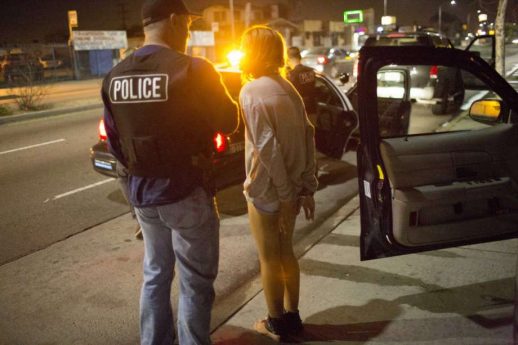
The importance of awareness extends beyond the purview of everyday citizens and consumers –– law enforcement officers must be informed members of the law enforcement process. The understanding that most prostitutes are victims of human trafficking is crucial to inform the process of arresting and charging individuals with prostitution. Although many prostitutes are forced into sexual services through psychological and physical abuse utilized by exploiters, victims of trafficking are still arrested and criminally charged for prostitution. The misconception of prostitutes within American society overlooks the fact that many prostitutes are victims themselves and the vast majority of prostitutes, whether voluntary or trafficked, want to escape prostitution. Survivor-centered legislation and policies are crucial in ending human trafficking and in supporting the necessary healing process thereafter. Instead of making it easier to charge individuals with prostitution, the focus must instead be on the prosecution of the exploiter and the individuals who are paying for sexual services. Prioritizing law enforcement education programs and legislation that benefits survivors of human trafficking is the first step to ending this horrid industry.
There are people fighting to end this industry and right the wrongs that survivors of human trafficking have experienced. California enacted its first anti-trafficking bill in 2005, which “made trafficking a felony and provided assistance to victims.” There are also programs, such as the HEAT unit at the Alameda County District Attorney Office, which directly combat human trafficking by raising awareness, identifying and responding trafficking vs. sex work, holding offenders accountable, changing policy and law, and supporting victims. Task forces such as HEAT are experiencing success throughout the state; between 2010-2012 “California’s task forces provided training to 25,591 law enforcement personnel, prosecutors, victim service providers, and other first responders.” Additionally, non-profits statewide are crucial in providing services to victims, such as immediate housing and support, in addition to rehabilitation programs like job training. AnnieCannons is an organization that trains survivors of human trafficking to become software professionals, providing training in software on various levels within the field. Organizations such as AnnieCannons are crucial in the fight against human trafficking, as they rehabilitate survivors of human trafficking.
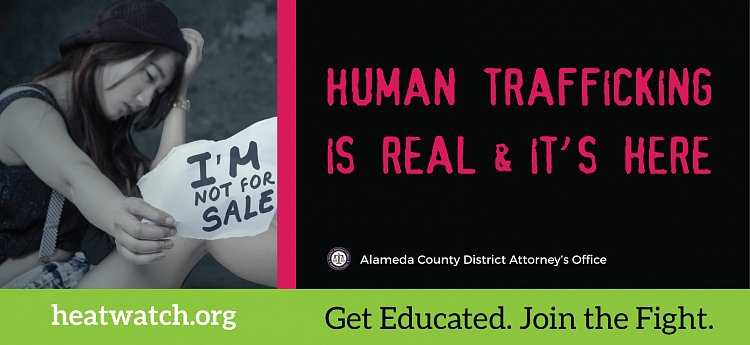
Continuously raising awareness of sex trafficking, both within California and throughout the world, is a crucial step in changing the the laws regarding sex workers and sex trafficking, as well as addressing the needs of human trafficking survivors. Training law enforcement and lawyers on how to address sex trafficking victims, in addition to informing policy makers of the need for reform of laws regarding prostitution, are actions that will drastically aid in ending human trafficking. It is important to recognize the commonality of human trafficking within our own backyard and fight against it relentlessly.
Featured Image Source: WIBC


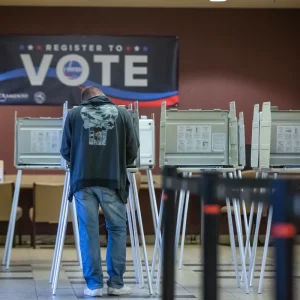
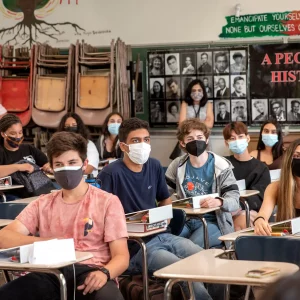

Be First to Comment